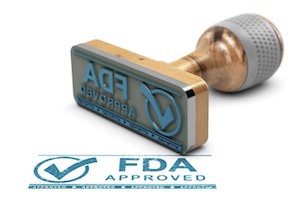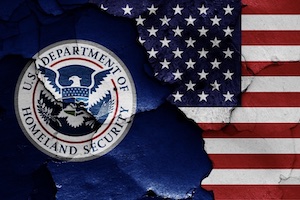Caterpillar to Butterfly

The length of time it takes a caterpillar to turn into a butterfly depends on several factors including the butterfly’s species, host plant type, food availability, habitat threats, and weather conditions. The process of transformation is called metamorphosis, and it takes about two weeks for the butterfly to emerge from its chrysalis. Some transformations may take millions of years. Regardless of the time factor involved, substantial transformation is the key if you wish to convince CBP of the new country of origin. We love the science behind Global Trade Compliance which is all we do.
Any Comments on FDA’s New Proposed Rule on Prior Notice Regulations?

On November 1, 2023, FDA issued a proposed rule that would make changes to its prior notice regulations, if the rule is finalized. These changes include requiring the name of the mail service and a mail tracking number to be provided in prior notice for food articles arriving by international mail. In addition, the FDA proposes that food facility registration information and prior notice be submitted within a specific timeframe after receiving certain notices of refusal or hold (“post-refusal” and “post-hold” submissions).
DHS Audit of CBP’s Centers of Excellence and Expertise Yields Evidence of Mismanagement

Uniformity, or rather the lack thereof, in procedures and practices within U.S. Customs and Border Protection’s (CBP) Centers of Excellence and Expertise (Centers) is evidently harming compliant companies within the trade community.
Key Legal Developments in 2023 Concerning United States Customs and International Trade

By Adrienne Braumiller, Founding Partner Harold Jackson, Associate Attorney Gavin Andersen, Braumiller Consulting Trade Advisor Section 301 Tariffs on Chinese goods continues to be at the forefront of international trade relations with China and the United States. As part of the four-year review required under the relevant statute (19 USC § 2417), the United States Trade […]
Should You File a Prior Disclosure in 2023?

2023 is more than a brand-new year – it is an opportunity for your company to prioritize supply chain and customs compliance. For some companies, this means filing a prior disclosure with U.S. Customs and Border Protection (CBP). Companies that are frequent importers are seriously considering disclosing entry violations under the condition that Customs will not issue civil penalties against them.
The Multi-Purpose Role of the U.S. Harmonized Tariff Schedule

When goods are imported into the United States, the importer-of-record (IOR) must, with reasonable care, file an entry (CBP Form 3461) and entry summary (CBP Form 7501), or the electronic equivalents, with U.S. Customs and Border Protection (CBP). These documents are the IOR’s preliminary and final declarations about the nature and circumstances of the import transaction, and they tell the story of the transaction through more than forty data elements.
Complying with BIS’s Advanced Computing and Semiconductor Manufacturing Rules – Knowledge, Due Diligence, and Technology Thresholds

U.S. industries supplying Chinese facilities with products, equipment, software, and technology used in semiconductor development and production are subject to regulatory controls under the Export Administration Regulations (“EAR”). New rules published by the Department of Commerce’s Bureau of Industry and Security (“BIS”) on October 13, 2022, 87 FR 62186, imposed additional license requirements regarding the […]
Primer on Forced Labor Enforcement for U.S. Importers

This Primer provides introductory guidance to complying with U.S. forced labor laws for importers, and includes an introductory overview to forced labor laws, U.S. Customs and Border Protection’s (CBP) authority to enforce forced labor laws, outlines importer requirements under The Uyghur Forced Labor Prevention Act, describes the detention processes for imported goods made with forced labor, lists key recommended compliance actions for adhering to U.S. forced labor laws, and provides helpful resources for complying with U.S. forced labor laws.
New Importer, Old Baggage Successor Liability for Antidumping & Countervailing Duties

Imagine your company imports from a vendor in Vietnam and sells them at a competitive margin in the U.S. Business is so-so until the Department of Commerce conducts an Antidumping or Countervailing Duty (“AD/CVD”) review that encompasses your company or its foreign vendor and determines the origin of your goods to be China, which causes you to owe backlogged AD/CVD at rates over 100% ad valorem for the past year.
In the Middle of Changing the MID CBP Proposal for Global Business Identifier

In a Federal Register Notice on Oct. 6, 2021, U.S. Customs and Border Protection published a 60-Day Notice and request for comments for a Global Business Identifier (GBI) Evaluative Proof of Concept (EPoC).
